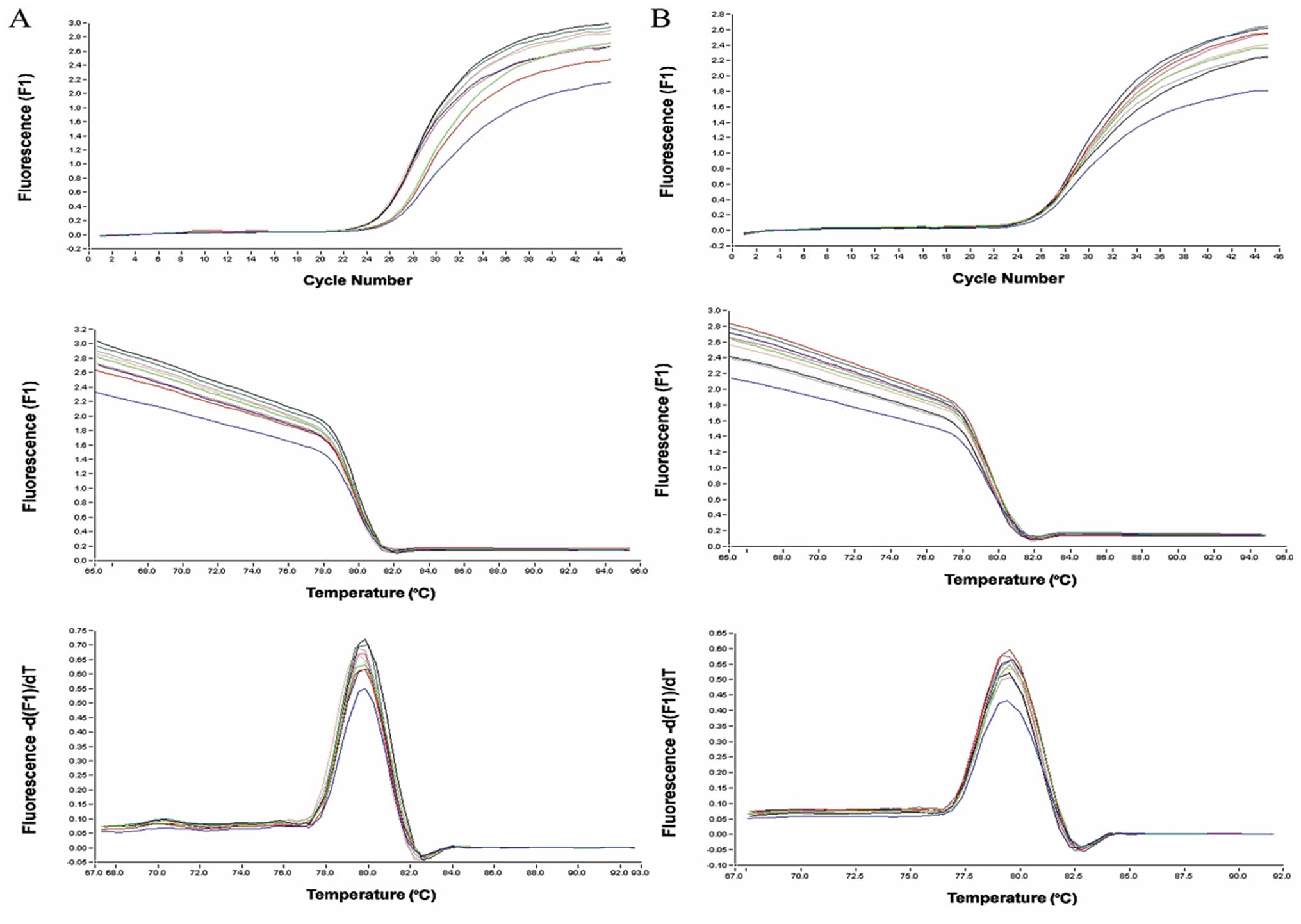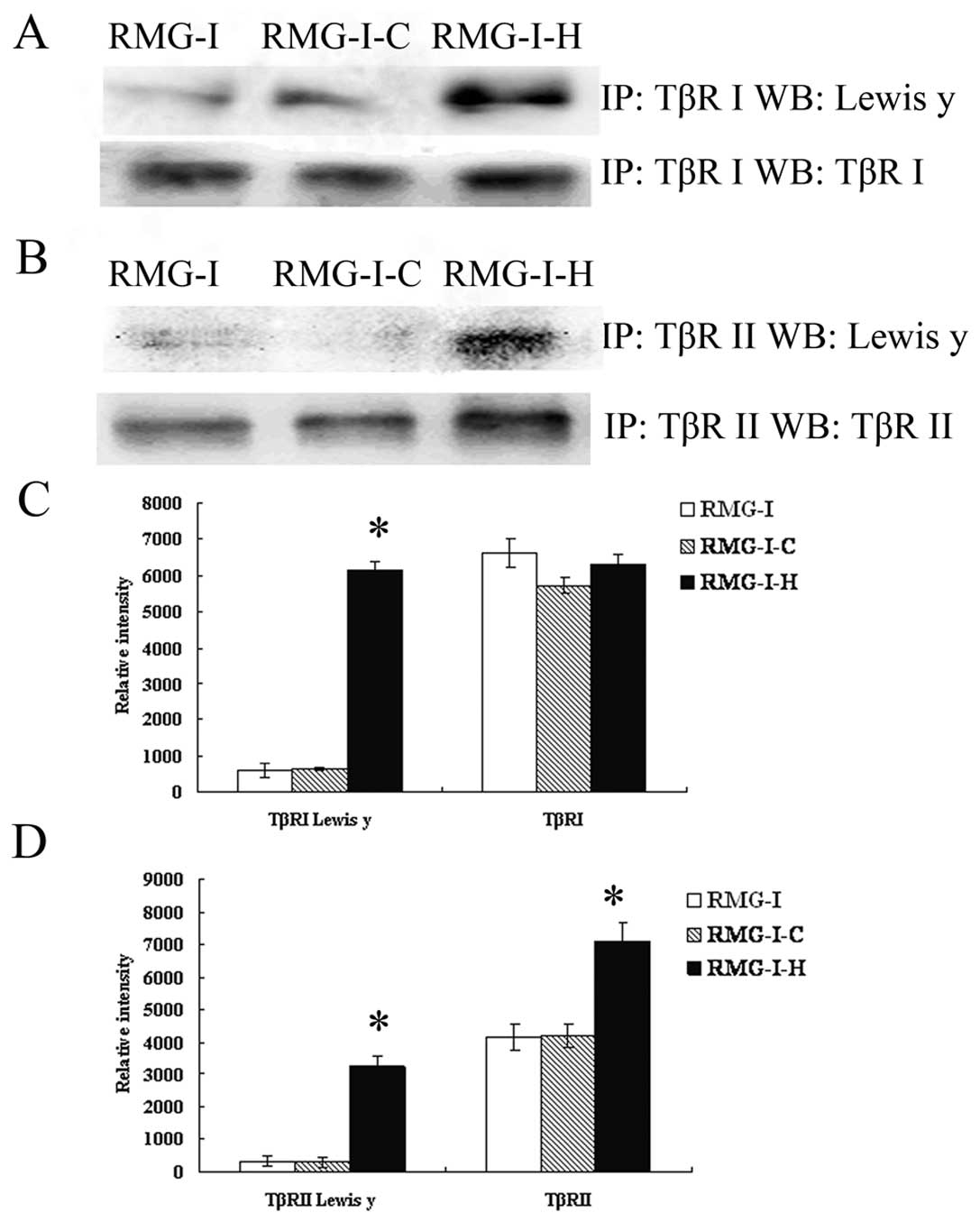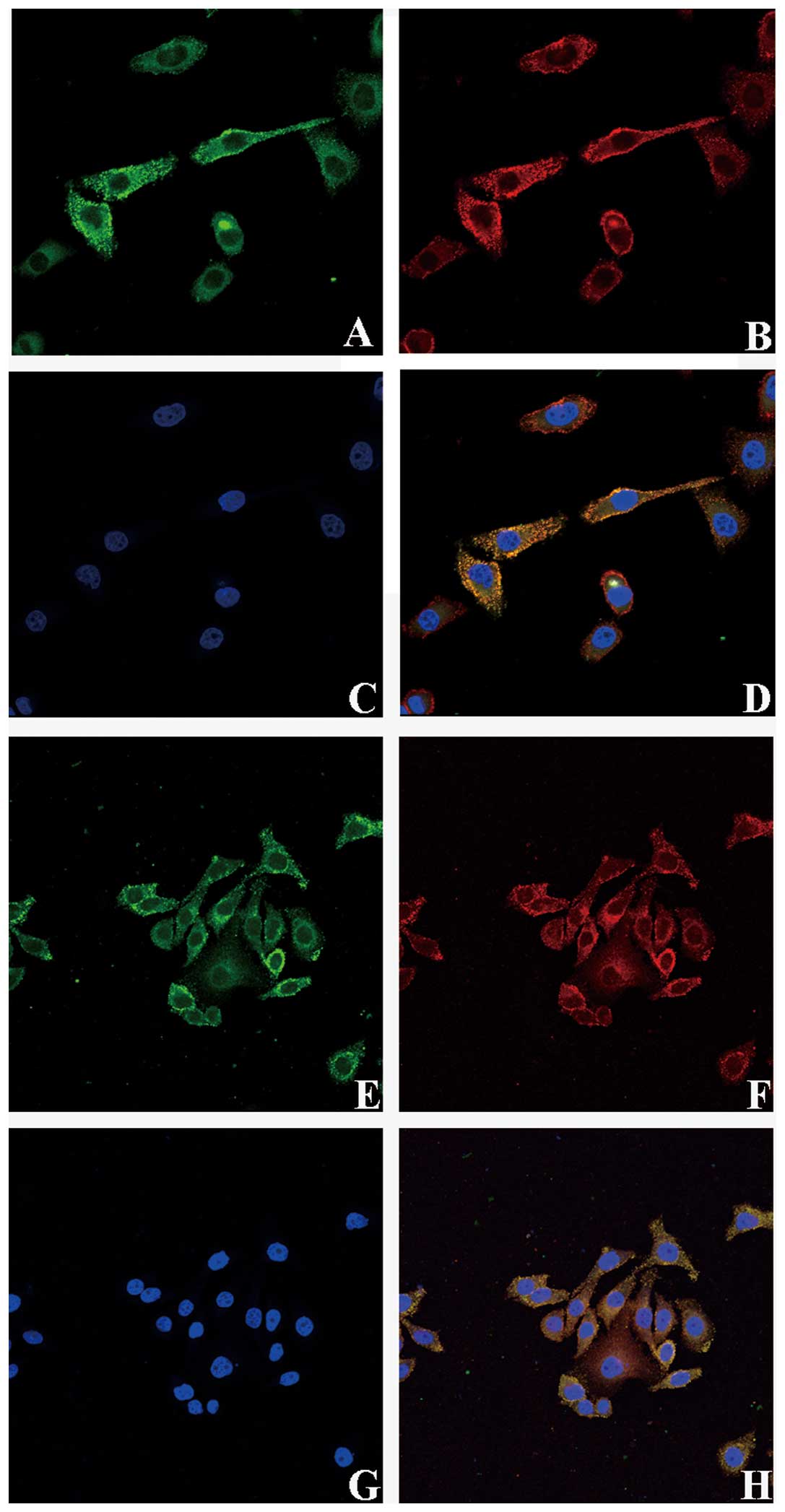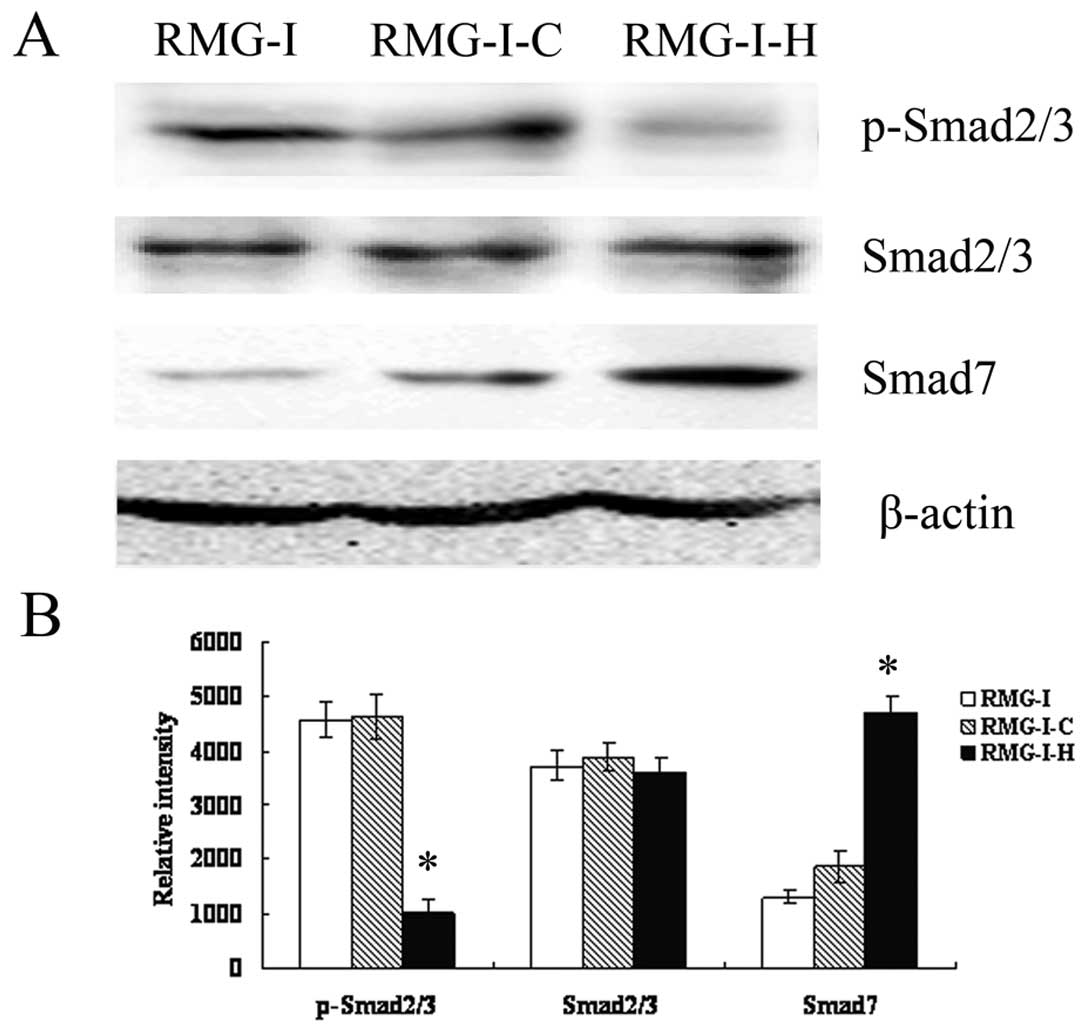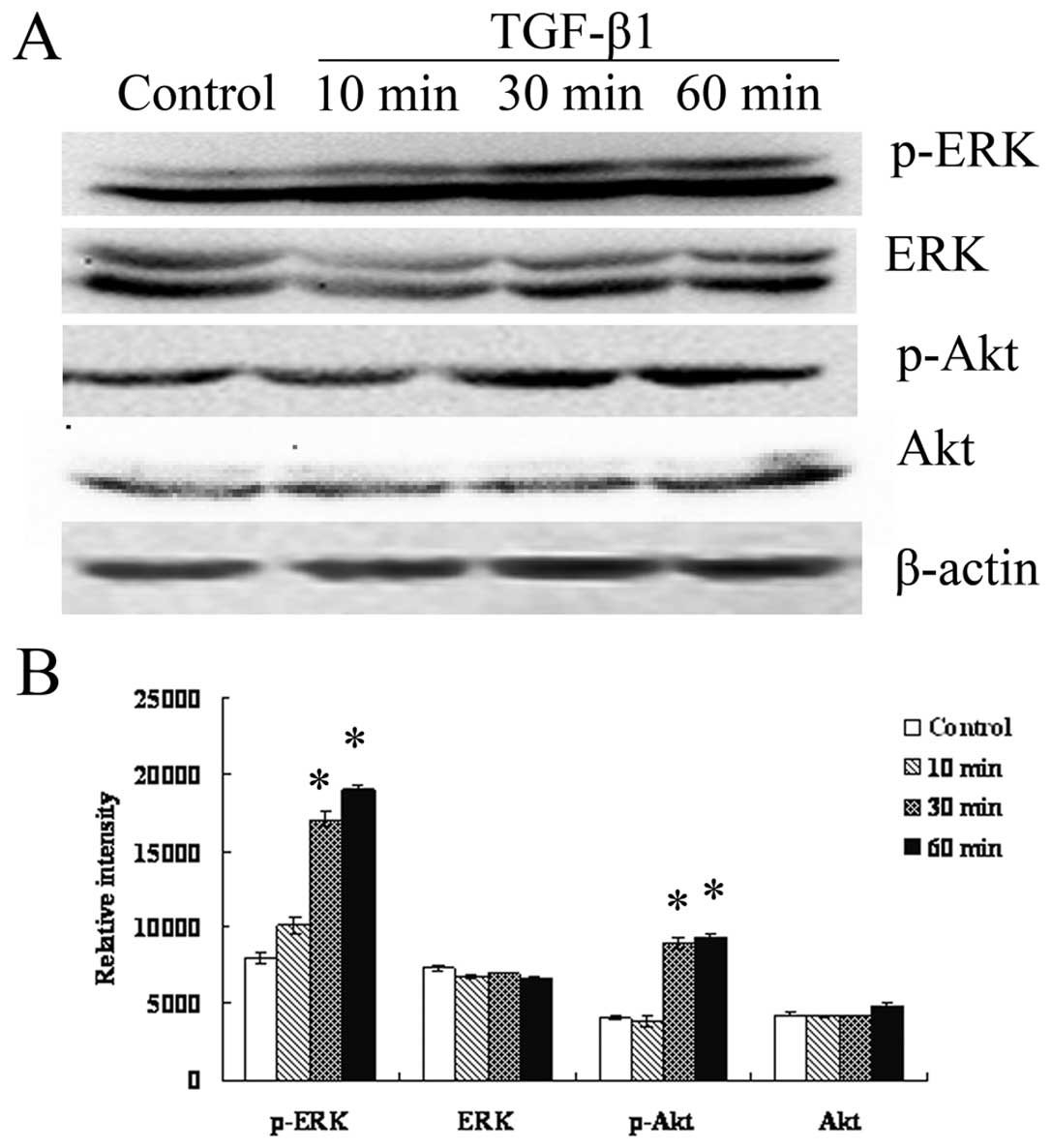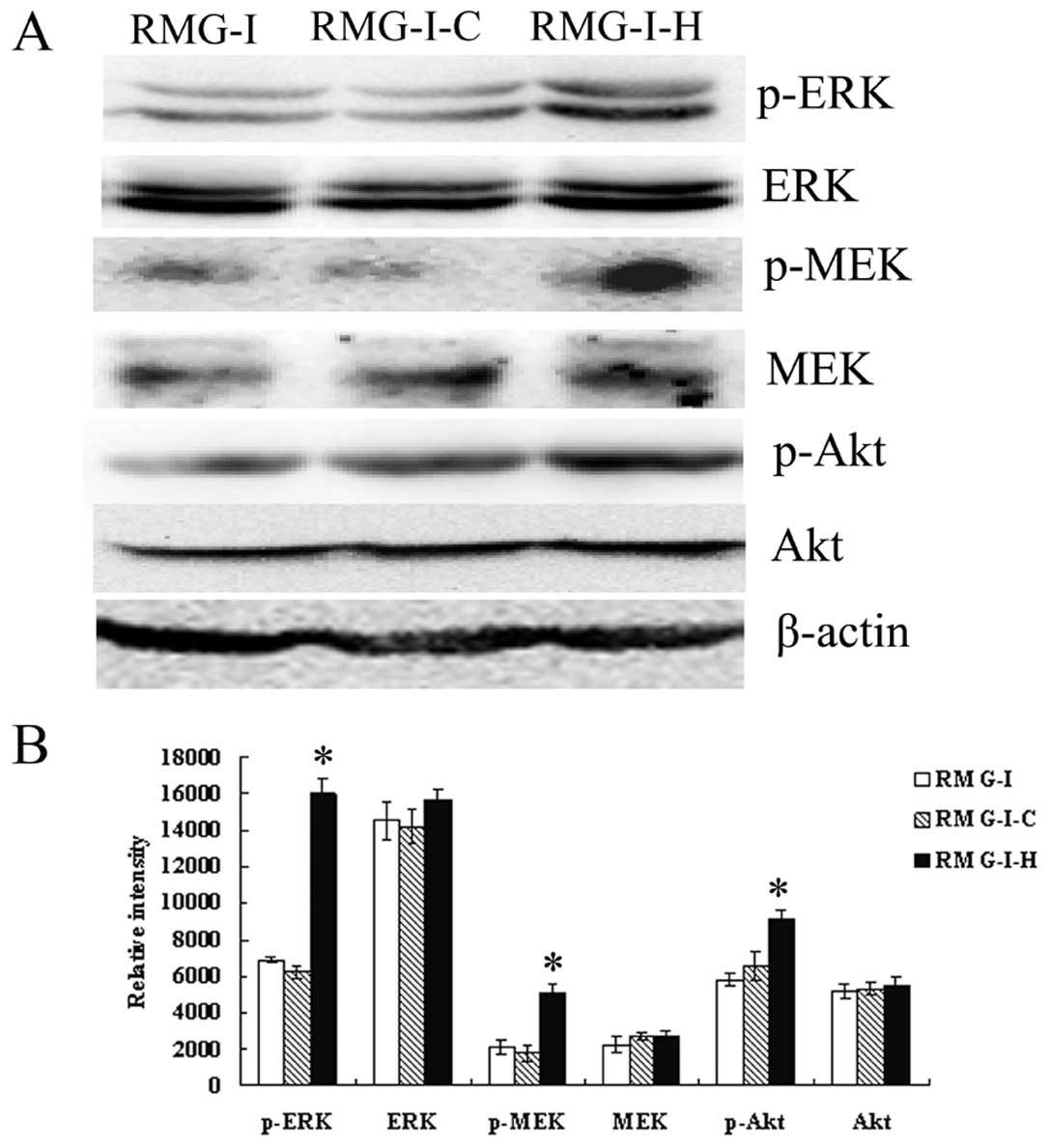|
1
|
Baldus SE, Mönig SP, Zirbes TK, et al:
Lewis(y) antigen (CD174) and apoptosis in gastric and colorectal
carcinomas: correlations with clinical and prognostic parameters.
Histol Histopathol. 21:503–510. 2006.PubMed/NCBI
|
|
2
|
Kuemmel A, Single K, Bittinger F, et al:
The prognostic impact of blood group-related antigen Lewis Y and
the ABH blood groups in resected non-small cell lung cancer. Tumour
Biol. 28:340–349. 2007. View Article : Google Scholar : PubMed/NCBI
|
|
3
|
Chhieng DC, Rodriguez-Burford C, Talley
LI, et al: Expression of CEA, Tag-72, and Lewis-Y antigen in
primary and metastatic lesions of ovarian carcinoma. Hum Pathol.
34:1016–1021. 2003. View Article : Google Scholar : PubMed/NCBI
|
|
4
|
Madjd Z, Parsons T, Watson NF, Spendlove
I, Ellis I and Durrant LG: High expression of Lewis y/b antigens is
associated with decreased survival in lymph node negative breast
carcinomas. Breast Cancer Res. 7:R780–R787. 2005. View Article : Google Scholar : PubMed/NCBI
|
|
5
|
Iwamori M, Tanaka K, Kubushiro K, et al:
Alterations in the glycolipid composition and cellular properties
of ovarian carcinoma-derived RMG-1 cells on transfection of the
α1,2-fucosyltransferase gene. Cancer Sci. 96:26–30. 2005.PubMed/NCBI
|
|
6
|
Lin B, Hao YY, Wang DD, Zhu LC, Zhang SL,
Saito M and Iwamori M: Transfection of α1,2-fucosyltransferase gene
increases the antigenic expression of Lewis y in ovarian cancer
cell line RMG-I. Acta Acad Med Sin. 30:284–289. 2008.
|
|
7
|
Hao YY, Lin B, Zhao Y, et al:
Alpha1,2-fucosyltransferase gene transfection influences on
biological behavior of ovarian carcinoma-derived RMG-I cells. Fen
Zi Xi Bao Sheng Wu Xue Bao. 41:435–442. 2008.
|
|
8
|
Liu J, Lin B, Hao Y, et al: Lewis y
antigen promotes the proliferation of ovarian carcinoma-derived
RMG-I cells through the PI3K/Akt signaling pathway. J Exp Clin
Cancer Res. 28:1542009. View Article : Google Scholar
|
|
9
|
Li F, Lin B, Hao Y, et al: Lewis y
promotes growth and adhesion of ovarian carcinoma-derived RMG-I
cells by upregulating growth factors. Int J Mol Sci. 11:3748–3759.
2010. View Article : Google Scholar : PubMed/NCBI
|
|
10
|
Wang X, Inoue S, Gu J, et al:
Dysregulation of TGF-β1 receptor activation leads to abnormal lung
development and emphysema-like phenotype in core fucose-deficient
mice. Proc Natl Acad Sci USA. 102:15791–15796. 2005.
|
|
11
|
Zhu LC, Lin B, Hao YY, Li FF, Diao B and
Zhang SL: Impact of α1,2-fucosyltransferase gene transfection on
cancer-related gene expression profile of human ovarian cancer cell
line RMG-1. Ai Zheng. 27:934–941. 2008.
|
|
12
|
Basu A, Murthy U, Rodeck U, Herlyn M,
Mattes L and Das M: Presence of tumor-associated antigens in
epidermal growth factor receptors from different human carcinomas.
Cancer Res. 47:2531–2536. 1987.PubMed/NCBI
|
|
13
|
Klinger M, Farhan H, Just H, et al:
Antibodies directed against Lewis-Y antigen inhibit signaling of
Lewis-Y modified ErbB receptors. Cancer Res. 64:1087–1093. 2004.
View Article : Google Scholar : PubMed/NCBI
|
|
14
|
Kosunen TU, Bång BE and Hurme M: Analysis
of Campylobacter jejuni antigens with monoclonal antibodies.
J Clin Microbiol. 19:129–133. 1984.
|
|
15
|
Bång BE, Hurme M, Juntunen K and Mäkelä O:
Studies of monoclonal and polyclonal anti-digoxin antibodies for
serum digoxin radioimmunoassay. Scand J Clin Lab Invest. 41:75–78.
1981.PubMed/NCBI
|
|
16
|
Moran AP, Knirel YA, Senchenkova SN,
Widmalm G, Hynes SO and Jansson PE: Phenotypic variation in
molecular mimicry between Helicobacter pylori
lipopolysaccharides and human gastric epithelial cell surface
glycoforms. Acid-induced phase variation in Lewisx and Lewisy
expression by H pylori lipopolysaccharides. J Biol Chem.
277:5785–5795. 2002.PubMed/NCBI
|
|
17
|
Livak KJ and Schmittgen TD: Analysis of
relative gene expression data using real-time quantitative PCR and
the 2−ΔΔCT method. Methods. 25:402–408. 2001. View Article : Google Scholar : PubMed/NCBI
|
|
18
|
Yu L, Hébert MC and Zhang YE: TGF-β
receptor-activated p38 MAP kinase mediates Smad-independent TGF-β
responses. EMBO J. 21:3749–3759. 2002.
|
|
19
|
Derynck R and Zhang YE: Smad-dependent and
Smad-independent pathways in TGF-β family signaling. Nature.
425:577–584. 2003.
|
|
20
|
Wilkes MC, Mitchell H, Penheiter SG, et
al: Transforming growth factor-β activation of phosphatidylinositol
3-kinase is independent of Smad2 and Smad3 and regulates fibroblast
responses via p21-activated kinase-2. Cancer Res. 65:10431–10440.
2005.
|
|
21
|
Zhang YE: Non-Smad pathways in TGF-β
signaling. Cell Res. 19:128–139. 2009.
|
|
22
|
Pasche B: Role of transforming growth
factor beta in cancer. J Cell Physiol. 186:153–168. 2001.
View Article : Google Scholar : PubMed/NCBI
|
|
23
|
Elliott RL and Blobe GC: Role of
transforming growth factor beta in human cancer. J Clin Oncol.
23:2078–2093. 2005. View Article : Google Scholar : PubMed/NCBI
|
|
24
|
Tian M and Schiemann WP: The TGF-β paradox
in human cancer: an update. Future Oncol. 5:259–271. 2009.
|
|
25
|
Fynan TM and Reiss M: Resistance to
inhibition of cell growth by transforming growth factor-beta and
its role in oncogenesis. Crit Rev Oncol. 4:493–540. 1993.PubMed/NCBI
|
|
26
|
Massagué J, Blain SW and Lo RS: TGFβ
signaling in growth control, cancer, and heritable disorders. Cell.
103:295–309. 2000.
|
|
27
|
Yamada SD, Baldwin RL and Karlan BY:
Ovarian carcinoma cell cultures are resistant to TGF-β1-mediated
growth inhibition despite expression of functional receptors.
Gynecol Oncol. 75:72–77. 1999.PubMed/NCBI
|
|
28
|
Hu W, Wu W, Nash MA, Freedman RS, Kavanagh
JJ and Verschraegen CF: Anomalies of the TGF-beta postreceptor
signaling pathway in ovarian cancer cell lines. Anticancer Res.
20:729–733. 2000.PubMed/NCBI
|
|
29
|
Chang J, Park K, Bang YJ, Kim WS, Kim D
and Kim SJ: Expression of transforming growth factor β type II
receptor reduces tumorigenicity in human gastric cancer cells.
Cancer Res. 57:2856–2859. 1997.
|
|
30
|
Grady WM, Rajput A, Myeroff L, Liu DF,
Kwon K, Willis J and Markowitz S: Mutation of the type II
transforming growth factor-β receptor is coincident with the
transformation of human colon adenomas to malignant carcinomas.
Cancer Res. 58:3101–3104. 1998.
|
|
31
|
Hahn SA, Schutte M, Hoque AT, et al: DPC4,
a candidate tumor suppressor gene at human chromosome 18q21.1.
Science. 271:350–353. 1996. View Article : Google Scholar : PubMed/NCBI
|
|
32
|
Miyaki M, Iijima T, Konishi M, et al:
Higher frequency of Smad4 gene mutation in human colorectal cancer
with distant metastasis. Oncogene. 18:3098–3103. 1999. View Article : Google Scholar : PubMed/NCBI
|
|
33
|
Eppert K, Scherer SW, Ozcelik H, et al:
MADR2 maps to 18q21 and encodes a TGFβ-regulated MAD-related
protein that is functionally mutated in colorectal carcinoma. Cell.
86:543–552. 1996.PubMed/NCBI
|
|
34
|
Wang D, Kanuma T, Takama F, et al:
Mutation analysis of the smad3 gene in human ovarian cancers. Int J
Oncol. 15:949–953. 1999.PubMed/NCBI
|
|
35
|
Vincent F, Nagashima M, Takenoshita S,
Khan MA, Gemma A, Hagiwara K and Bennett WP: Mutation analysis of
the transforming growth factor-β type II receptor in human cell
lines resistant to growth inhibition by transforming growth
factor-β. Oncogene. 15:117–122. 1997.
|
|
36
|
Wang D, Kanuma T, Mizumuma H, Ibuki Y and
Takenoshita S: Mutation analysis of the Smad6 and Smad7 gene in
human ovarian cancers. Int J Oncol. 17:1087–1091. 2000.PubMed/NCBI
|
|
37
|
Dettke M, Pálfi G and Loibner H:
Activation-dependent expression of the blood group-related lewis Y
antigen on peripheral blood granulocytes. J Leukoc Biol.
68:511–514. 2000.PubMed/NCBI
|
|
38
|
Farhan H, Schuster C, Klinger M, et al:
Inhibition of xenograft tumor growth and down-regulation of ErbB
receptors by an antibody directed against Lewis Y antigen. J
Pharmacol Exp Ther. 319:1459–1466. 2006. View Article : Google Scholar : PubMed/NCBI
|
|
39
|
Wang QY, Zhang Y, Chen HJ, Shen ZH and
Chen HL: Alpha 1,3-fucosyltransferase-VII regulates the signaling
molecules of the insulin receptor pathway. FEBS J. 274:526–538.
2007. View Article : Google Scholar : PubMed/NCBI
|
|
40
|
Dowdy SC, Mariani A and Janknecht R:
HER2/Neu- and TAK1-mediated up-regulation of the transforming
growth factor β inhibitor Smad7 via the ETS protein ER81. J Biol
Chem. 278:44377–44384. 2003.PubMed/NCBI
|
|
41
|
Ohashi N, Yamamoto T, Uchida C, et al:
Transcriptional induction of Smurf2 ubiquitin ligase by TGF-β. FEBS
Lett. 579:2557–2563. 2005.
|
|
42
|
Edlund S, Bu S, Schuster N, et al:
Transforming growth factor-β1 (TGF-β)-induced apoptosis of prostate
cancer cells involves Smad7-dependent activation of p38 by
TGF-β-activated kinase 1 and mitogen-activated protein kinase
kinase 3. Mol Biol Cell. 14:529–544. 2003.
|
|
43
|
Iwai T, Murai J, Yoshikawa H and Tsumaki
N: Smad7 inhibits chondrocyte differentiation at multiple steps
during endochondral bone formation and down-regulates p38 MAPK
pathways. J Biol Chem. 283:27154–27164. 2008. View Article : Google Scholar : PubMed/NCBI
|
|
44
|
Mazars A, Lallemand F, Prunier C, et al:
Evidence for a role of the JNK cascade in Smad7-mediated apoptosis.
J Biol Chem. 276:36797–36803. 2001. View Article : Google Scholar : PubMed/NCBI
|















